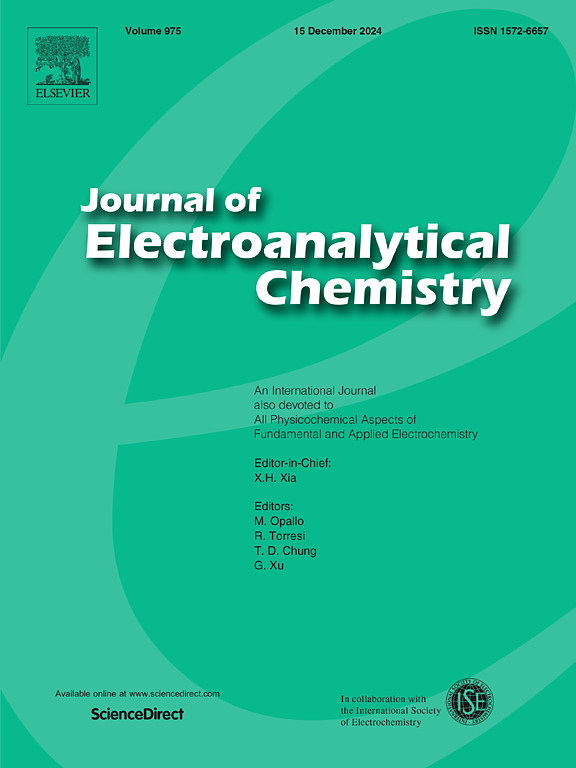Enhancement of electrochemical performance in supercapacitors using TiO2 nanoparticles-doped PVA-KOH gel electrolyte
IF 4.1
3区 化学
Q1 CHEMISTRY, ANALYTICAL
引用次数: 0
Abstract
The development of PVA-KOH gel electrolytes doped with various concentrations of TiO2 nanoparticles was investigated to enhance the electrochemical performance and stability of symmetric supercapacitors (SSCs). The optimized SSC, with 0.30 % TiO2 doping, demonstrated superior electrochemical performance, achieving a specific capacitance of 154.33 F/g, an energy density of 23.43 Wh/kg, and power density of 1196.43 W/kg. This improvement is attributed to the ability of TiO2 nanoparticles to inhibit polymer crystallization, thereby enhancing ionic conductivity and compatibility between the electrode and electrolyte. Electrochemical Impedance Spectroscopy (EIS) indicated reduced series resistance (Rs) and charge transfer resistance (Rct) for the SSC with 0.30 % TiO2, with values of 0.61 Ω and 0.39 Ω, respectively. Additionally, the SSC exhibited excellent cycling stability, retaining 100 % of its capacitance after 10,000 charge–discharge cycles at a current density of 1 A/g. These results highlight the potential of TiO2-doped PVA-KOH gel electrolytes in developing high-performance, safe supercapacitors for a wide range of applications.

求助全文
约1分钟内获得全文
求助全文
来源期刊
CiteScore
7.80
自引率
6.70%
发文量
912
审稿时长
2.4 months
期刊介绍:
The Journal of Electroanalytical Chemistry is the foremost international journal devoted to the interdisciplinary subject of electrochemistry in all its aspects, theoretical as well as applied.
Electrochemistry is a wide ranging area that is in a state of continuous evolution. Rather than compiling a long list of topics covered by the Journal, the editors would like to draw particular attention to the key issues of novelty, topicality and quality. Papers should present new and interesting electrochemical science in a way that is accessible to the reader. The presentation and discussion should be at a level that is consistent with the international status of the Journal. Reports describing the application of well-established techniques to problems that are essentially technical will not be accepted. Similarly, papers that report observations but fail to provide adequate interpretation will be rejected by the Editors. Papers dealing with technical electrochemistry should be submitted to other specialist journals unless the authors can show that their work provides substantially new insights into electrochemical processes.

 求助内容:
求助内容: 应助结果提醒方式:
应助结果提醒方式:


